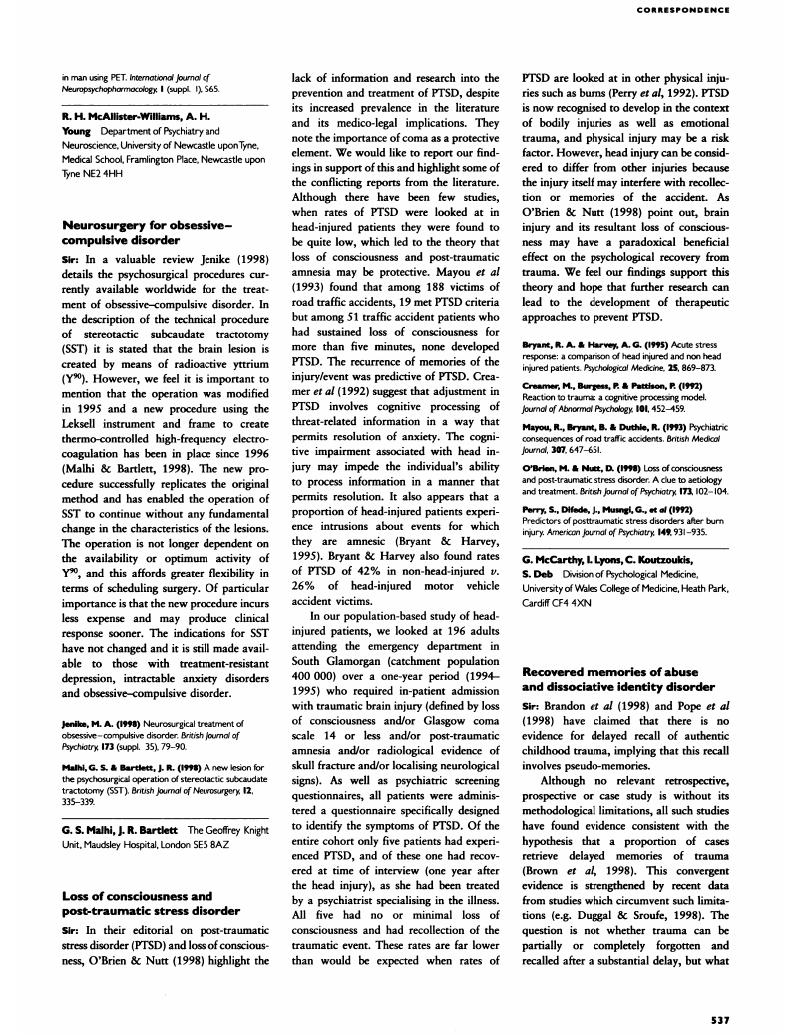No CrossRef data available.
Article contents
Loss of consciousness and post-traumatic stress disorder
Published online by Cambridge University Press: 03 January 2018
Abstract
An abstract is not available for this content so a preview has been provided. As you have access to this content, a full PDF is available via the ‘Save PDF’ action button.

- Type
- Columns
- Information
- Copyright
- Copyright © 1998 The Royal College of Psychiatrists
References
Bryant, R. A. & Harvey, A. G. (1995) Acute stress response: a comparison of head injured and non head injured patients. Psychological Medicine, 25, 869–873.CrossRefGoogle ScholarPubMed
Creamer, M., Burgess, P. & Pattison, P. (1992) Reaction to trauma: a cognitive processing model. Journal of Abnormal Psychology, 101, 452–459.CrossRefGoogle ScholarPubMed
Mayou, R., Bryant, B. & Duthie, R. (1993) Psychiatric consequences of road traffic accidents. British Medical Journal, 307, 647–651.Google Scholar
O'Brien, M. & Nutt, D. (1998) Loss of consciousness and post-traumatic stress disorder. A clue to aetiology and treatment. British Journal of Psychiatry, 173, 102–104.CrossRefGoogle ScholarPubMed
Perry, S., Difede, J., Musngi, G., et al (1992) Predictors of posttraumatic stress disorders after burn injury. American Journal of Psychiatry, 149, 931–935.Google ScholarPubMed





eLetters
No eLetters have been published for this article.